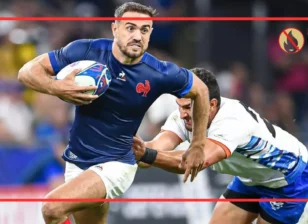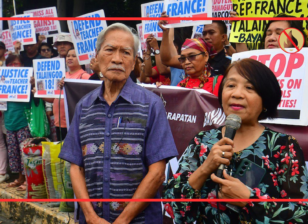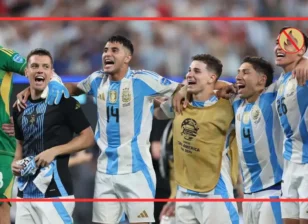Exploring Activism: French Protests Addressing Riots and Racism
At a time when French police are mobilized in large numbers for a series of high-security events, families, community organizations, and far-left activists protested racism and police brutality on Saturday by staging marches in towns around the country. This action alarmed authorities. The rallies on Saturday were sparked by resentment over the June death of 17-year-old Nahel Merzouk at the hands of the police. Still, they also featured groups calling for economic justice, affordable housing, and immigrant rights. Interior Minister Gerald Darmanin issued an order for extra police surveillance, and more than a hundred marches were scheduled around France.
Root Causes of Riots
France provides little details regarding those detained and prosecuted in the riots, particularly in instances when children are involved. However, attorneys and demonstrators in Marseille informed openDemocracy that a large number of defendants are young, male people of color from lower-class neighborhoods. One lawyer said that although some white French communist student activists were present during the protests, they were not the ones being detained. Tougher laws restricting police use of guns, an independent entity to take over the role of the internal agency in charge of looking into police abuses, and significant state funding for low-income communities are among the demands made by the protestors.
Role of Media And Political Discourse
At the otherwise calm, lively demonstration in Paris, tensions momentarily increased. A bank along the march route had its windows broken by protesters, and police had to evacuate the alarmed staff. Another location saw demonstrators encircling a patrol car, prompting an officer to dash out while brandishing a revolver. According to the interior minister’s office, over 30,000 police and gendarmes were on duty on Saturday to maintain order during Pope Francis’s visit to Marseille and three Rugby World Cup games.
Moreover, more security was put in place for the three-day visit by King Charles and Queen Camilla of Britain, which ended on Friday night. Renowned for not maintaining national statistics on racial matters, Marchers mourned what they perceive has been a failure to solve problems uncovered by the shooting of Merzouk, a French-born adolescent of North African heritage, in the Paris neighborhood of Nanterre. After being pulled over by two police officers, who said he had been driving recklessly, he was shot in the left arm and chest and later died. The initial charge against the officer who fired the shot was voluntary homicide.
Police Harassment And Killing Behavior
Following Merzouk’s killing, violent protests broke out in Nanterre and eventually expanded to become countrywide rioting. Although the widespread use of police subdued the chaos, tensions still exist. “In France, police kill people.” That’s nothing new.
However, it seems that people outside of the impoverished areas and the middle classes are becoming more conscious of governmental persecution, according to Belkacem Amirat, who traveled from the Paris suburb of Antony to participate in the march in the capital. The contentious and complex subject of racial segregation in France has been linked to the present violence. Understanding the causes and consequences of Nahel’s murder requires an understanding of his ethnic origin since it sheds insight into the long-standing tensions and prejudice that many French citizens of North African heritage face.
Statement of a Law Student Against Racism
“The police system needs to be fundamentally reformed,” according to law student Justine Larnaca, particularly to address racial profiling and reduce police aggression during traffic stops and arrests. The French administration denies police violence and institutional racism. In an interview with France-Info on Saturday, Paris Police Chief Laurent Nunez defended his officers, stating that in certain cases, “legitimate, legal, and proportional violence” is necessary to put an end to “dangerous behavior, vandalism, and looting.” A thousand officers were stationed in Paris to maintain order for the march on Saturday.
A number of activists and human rights organizations have questioned the government’s commitment to accountability and change, pointing out that comparable incidents of police violence in the past have seldom resulted in the officers involved being found guilty or punished. Additionally, they have criticized the government’s positions on immigration, social justice, and security, claiming that these measures have caused a number of French citizens to be marginalized and excluded.
Conclusion
In conclusion, the horrifying police assault on a French adolescent is an example of the widespread intolerance in the nation and a flagrant violation of human rights. Due to his resistance to capture, the young Algerian boy was attacked by four police officers and then strangled. Similar to the George Floyd case in the United States, in which a white police officer murdered a black man by squatting on his neck for almost nine minutes, the French incident sparked outrage and demonstrations.





